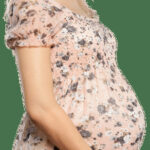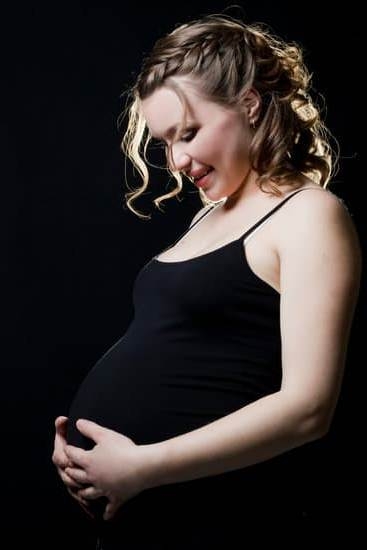Pregnancy is an exciting and life-changing experience for many women. Understanding the signs of early pregnancy is crucial for those who are trying to conceive or may suspect they are pregnant.
From missed menstrual periods to changes in the body, recognizing the early indicators can help individuals seek appropriate medical care and make informed decisions about their health and future. In this article, we will explore the various signs of early pregnancy, providing valuable information for those who may be on the journey to parenthood.
Early pregnancy can bring about a range of physical and emotional changes in a woman’s body. While some signs may be more commonly recognized, such as a missed menstrual period, others may be less well-known but just as important indicators of pregnancy. Understanding these signs can help individuals identify and confirm their pregnancy, allowing them to take appropriate steps towards prenatal care and preparation for the next stage of their lives.
In addition to physical symptoms like fatigue, changes in breast tissue, and nausea, early pregnancy can also bring about emotional changes such as mood swings and heightened sensitivity to stimuli. By being aware of these signs and symptoms, individuals can better navigate the early stages of pregnancy with confidence and insight into how their bodies are responding to this life-altering experience.
Missed Menstrual Period
A missed menstrual period is often one of the first and most prominent signs of early pregnancy. This key indicator is usually what prompts many women to consider the possibility that they may be pregnant. Understanding the underlying reasons for a missed period can help individuals recognize the signs of early pregnancy and take appropriate action.
Understanding the Menstrual Cycle
The menstrual cycle is a normal and natural process that occurs in reproductive-aged females. This cycle involves hormonal changes that regulate ovulation, menstruation, and potential pregnancy. A typical menstrual cycle lasts around 28 days, although variations are common among individuals. During this time, the uterus prepares for possible fertilization by thickening its lining in anticipation of a fertilized egg.
The Role of Missed Periods in Early Pregnancy
When conception takes place, a fertilized egg attaches to the uterine wall, signaling to the body that pregnancy has occurred. As a result, hormonal changes occur which signal the body to stop shedding its uterine lining (also known as menstruation) and instead support the growing embryo. This shift in hormone levels results in a missed menstrual period, serving as an important sign of early pregnancy for many women.
In addition to a missed period, there are other signs of early pregnancy that may become noticeable within the first few weeks after conception. These include changes in breast tenderness and size, fatigue and tiredness, nausea and vomiting (commonly known as morning sickness), increased urination frequency, mood swings and emotional changes, food aversions or cravings, as well as sensitivity to smells.
It is important for individuals who suspect they may be pregnant to seek medical confirmation through home pregnancy tests or consultation with a healthcare professional to understand their next steps.
Changes in Breasts
During early pregnancy, changes in the breasts are common as a result of hormonal fluctuations. These changes can be one of the first noticeable signs of early pregnancy. If you are trying to conceive or suspect that you may be pregnant, it’s important to be aware of these potential breast changes as an indicator of pregnancy.
Some common signs of early pregnancy related to breast changes include:
1. Tenderness and Sensitivity: Many women experience increased tenderness and sensitivity in their breasts as a result of hormonal shifts. The breasts may feel sore to the touch, especially around the nipples.
2. Changes in Size and Shape: In early pregnancy, your breasts may start to feel fuller and heavier. You may also notice that your bra size has changed, signaling growth in the breast tissue.
3. Darkening of Nipples: Another sign of early pregnancy is darkening of the nipples, known as “nipple pigmentation.” The area around the nipple, called the areola, may also darken.
These changes occur due to an increase in estrogen and progesterone levels during early pregnancy. These hormones stimulate the growth of milk ducts and glands in preparation for breastfeeding. In addition to hormonal changes, increased blood flow to the breasts can also contribute to these physical alterations.
It’s important to keep in mind that not all women will experience these specific breast changes during early pregnancy. However, being aware of these potential signs can help you determine if further investigation is needed. If you have noticed any unusual or concerning breast changes along with other signs of early pregnancy, it is advisable to consult with a healthcare provider for confirmation and guidance on next steps.
Fatigue and Tiredness
During the early stages of pregnancy, one of the most common signs that women may experience is fatigue and tiredness. This symptom is often attributed to the hormonal changes taking place in the body as it prepares for pregnancy. The level of progesterone hormone increases significantly during this time, which can lead to feelings of exhaustion and overall fatigue.
Many women report feeling unusually tired even in the first few weeks after conception. This can be quite confusing for some, especially if they are unaware of their pregnancy at this point. It’s important to listen to your body and get enough rest during this crucial time, even if it means taking naps throughout the day or going to bed earlier than usual.
In addition to hormonal changes, fatigue and tiredness can also be attributed to the body’s increased metabolism as it begins to support the developing fetus. This increased energy demand on the body can make pregnant women feel more exhausted than usual. However, it’s essential for women who suspect they may be pregnant to consider other signs of early pregnancy alongside fatigue and tiredness before seeking medical confirmation from a healthcare professional.
Nausea and Vomiting
In addition to nausea and vomiting, many women also experience changes in their digestive habits early in pregnancy. This can include increased heartburn, constipation, or diarrhea. These changes are often attributed to hormonal fluctuations that affect the gastrointestinal system. It’s important for individuals experiencing these symptoms to stay hydrated and eat small, frequent meals to help manage digestive discomfort.
While morning sickness and other digestive changes can be challenging to deal with, they are generally considered normal parts of early pregnancy. However, if symptoms become severe and persistent, it’s important to consult with a healthcare provider. In some cases, extreme nausea and vomiting can lead to dehydration and weight loss, so it’s crucial for pregnant individuals to seek medical guidance if they are unable to keep food or fluids down.
| Early Pregnancy Symptom | Description |
|---|---|
| Morning Sickness | Nausea and vomiting that commonly occurs in the first trimester of pregnancy |
| Changes in Digestive Habits | Includes increased heartburn, constipation, or diarrhea due to hormonal fluctuations |
Increased Urination
During early pregnancy, hormonal changes can have a significant impact on a woman’s body. One of the common signs of early pregnancy that women experience is increased urination. This occurs due to the hormonal changes, particularly the increase in levels of human chorionic gonadotropin (hCG) and progesterone, which can affect the bladder.
The increase in hCG and progesterone can lead to an increase in blood flow to the pelvic area, resulting in increased pressure on the bladder. As a result, women may find themselves needing to urinate more frequently than usual, even during the night. This frequent urination can be one of the earliest signs of pregnancy and may begin as early as six to eight weeks after conception.
Additionally, as the uterus expands to accommodate the growing fetus, it puts additional pressure on the bladder, further contributing to the need for frequent urination. While increased urination is a normal part of early pregnancy, it is essential for women to stay hydrated despite this symptom. Drinking plenty of water helps flush out toxins from the body and maintain overall health.
Overall, understanding the signs of early pregnancy, including increased urination, can help women recognize and prepare for the changes their bodies will undergo during this transformative time. Consulting with a healthcare provider can provide reassurance and guidance on managing these symptoms throughout pregnancy.
Mood Swings and Emotional Changes
During early pregnancy, women may experience mood swings and emotional changes due to hormonal fluctuations. These changes can be overwhelming and confusing, but it is important to understand that they are a normal part of the pregnancy process. Here are some common signs of mood swings and emotional changes during early pregnancy:
- Heightened sensitivity: Many women report feeling more sensitive or emotional than usual during the early stages of pregnancy. This can manifest as crying easily, feeling irritable, or experiencing mood swings throughout the day.
- Anxiety and worry: The anticipation of becoming a parent, coupled with hormonal changes, can lead to increased anxiety and worry in expectant mothers. It is common for women to feel overwhelmed or stressed about the future during this time.
- Feelings of happiness and excitement: Alongside the potential negative emotions, many women also experience intense feelings of happiness and excitement about their pregnancy. This can lead to an emotional rollercoaster as expectant mothers navigate through various emotions.
It’s important for women experiencing these signs of early pregnancy to seek support from their partner, family members, and healthcare provider. Understanding that these mood swings and emotional changes are a natural part of the pregnancy journey can help women cope with these symptoms more effectively. Additionally, engaging in self-care practices such as mindfulness, exercise, and relaxation techniques can also help manage emotional fluctuations during early pregnancy.
Other Possible Signs of Early Pregnancy
When it comes to signs of early pregnancy, many people are familiar with the more obvious symptoms such as missed periods and morning sickness. However, there are also other possible signs that may indicate a woman is pregnant. These signs include food aversions, cravings, and increased sensitivity to smells. While these symptoms can vary from person to person, they are worth paying attention to if you suspect you may be pregnant.
Food Aversions
One of the lesser-known signs of early pregnancy is experiencing sudden and intense food aversions. During the first trimester, many women find that they have an aversion to certain foods that they once enjoyed. This can be due to hormonal changes in the body and can make meal planning more challenging. If you find yourself suddenly unable to stomach foods that you used to love, it could be a sign that you are pregnant.
Cravings
On the flip side of food aversions, cravings for specific foods are also common during early pregnancy. Many women report strong desires for certain types of foods, which can range from sweet treats to salty snacks or even unusual combinations of flavors. While cravings alone are not a definitive sign of pregnancy, when combined with other symptoms such as missed periods and breast changes, they can indicate that you may be expecting.
Sensitivity to Smells
During early pregnancy, some women also experience heightened sensitivity to smells. This means that certain scents that never bothered them before may suddenly become overwhelming or even nauseating. This sensitivity is thought to be related to hormonal changes in the body and can add another layer of complexity for women who suspect they may be pregnant.
Conclusion
In conclusion, it is important for women who suspect they may be experiencing signs of early pregnancy to seek medical confirmation. While the symptoms discussed in this article can be significant indicators of pregnancy, they may also be attributed to other health issues or conditions. Therefore, visiting a healthcare provider for a professional evaluation and pregnancy test is essential for confirming a pregnancy.
Once pregnancy has been confirmed, understanding the next steps is crucial. This includes scheduling regular prenatal check-ups, making necessary lifestyle adjustments, and seeking guidance on diet, exercise, and any medication that may need to be adjusted during pregnancy. Additionally, seeking emotional support from loved ones and healthcare professionals can help women navigate the physical and emotional changes that come with pregnancy.
It’s important to remember that every woman’s experience with early pregnancy signs may vary. Some women may experience all of the symptoms discussed in this article, while others may only encounter a few. The key is to recognize the potential signs of early pregnancy, seek medical confirmation, and take proactive steps towards a healthy pregnancy journey.
Frequently Asked Questions
How Soon Do Early Pregnancy Symptoms Start?
Early pregnancy symptoms can start as early as one to two weeks after conception. These symptoms may include fatigue, nausea, breast tenderness, and frequent urination.
How Do You Feel After 1 Week of Pregnancy?
After one week of pregnancy, some women may not feel any different physically. However, some may notice subtle changes like increased tiredness or a heightened sense of smell. It varies from woman to woman.
What Is the Earliest a Pregnancy Test Will Show Positive?
The earliest a pregnancy test will show a positive result is typically around 10-14 days after conception. This timing also depends on the sensitivity of the pregnancy test being used. Some tests may be able to detect pregnancy hormones earlier than others.

Welcome to my fertility blog. This is a space where I will be sharing my experiences as I navigate through the world of fertility treatments, as well as provide information and resources about fertility and pregnancy.





